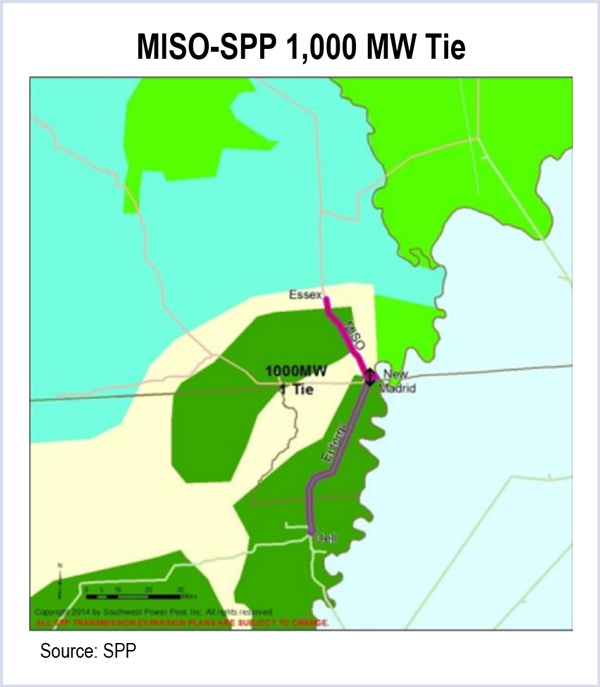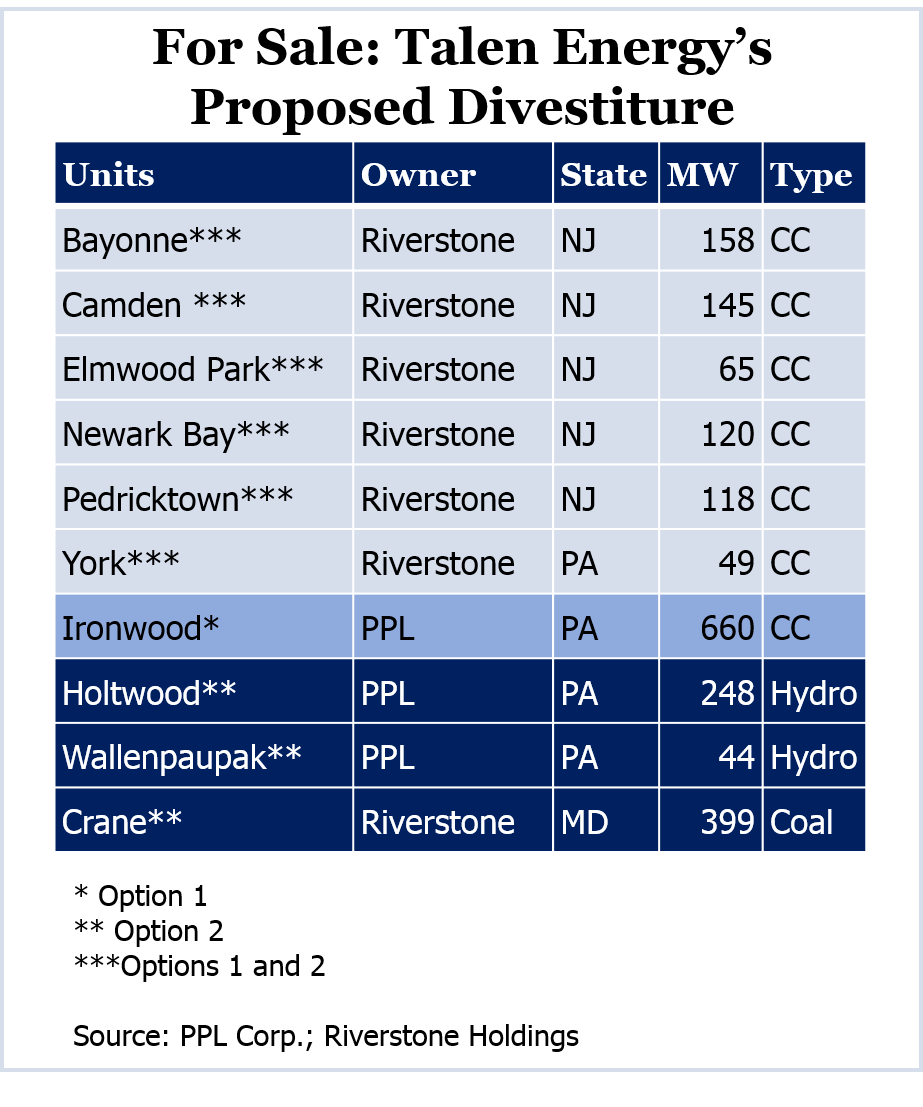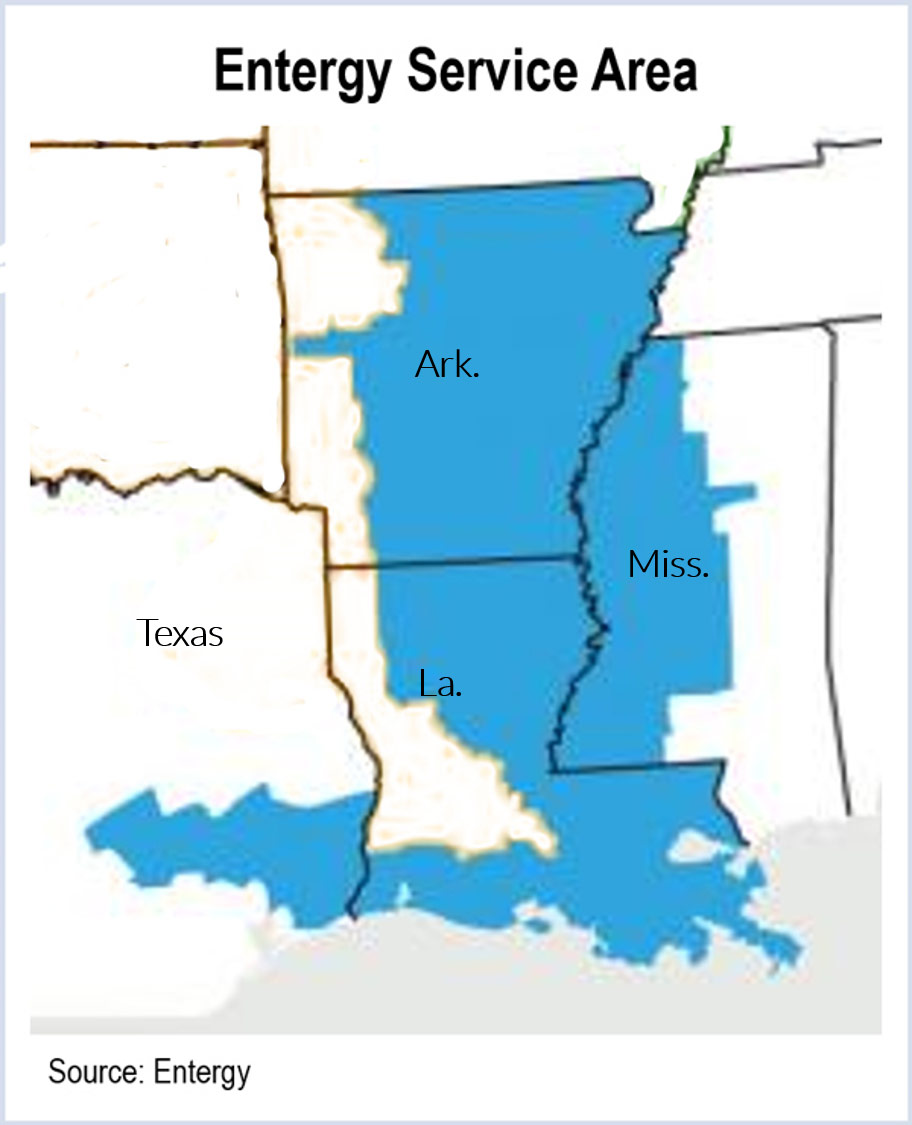By Chris O’Malley
The Federal Energy Regulatory Commission granted MISO’s request to suspend action on long-term transmission service requests (TSRs) between its north and south regions through April 1 as it tries to resolve a flow dispute with SPP.
The waiver (ER14-2022) also allows MISO to waive Tariff requirements and North American Energy Standards Board standards involving flows exporting from MISO South to PJM.
MISO requested the waiver through April 1, 2015, to help it address transmission constraints resulting from its dispute with SPP.
SPP alleged its joint operating agreement with MISO was breached after Entergy joined MISO last year and began transferring electricity over SPP’s lines. SPP has billed MISO more than $35 million for flows exceeding the 1,000-MW physical contact path limit between MISO North and MISO South.
MISO told the commission that the waiver request would affect 10 pending long-term firm TSRs from a single customer totaling 2,831 MW.
MISO’s waiver request provided some insight into its thinking in integrating Entergy before the dispute with SPP arose.
Originally, MISO said it anticipated that the primary restrictions on flows between its north and south regions would be set under the Operations Reliability Coordination Agreement (ORCA), a seams agreement with SPP, and that it would have extra time to negotiate seams agreements governing flows between those regions.
MISO told FERC the need for a 1,000-MW limit on flows between the north and south was a “sudden and unexpected development” and that it hopes to have alternative seams agreements in place by April 1 — the end of the operations transition period under the ORCA.
Interveners — including Southern Co., Louisville Gas & Electric and the Tennessee Valley Authority — opposed the waiver, saying it was “premature for MISO to assume that the [transition period] will not be extended” past April 1.
They said a waiver would prevent an extension of the transition period and deny their ability “to obtain much-needed reliability information on MISO’s planned flow activity.”
In approving the waiver, the commissioners said MISO “has acted in good faith with respect to the Tariff provisions for which [the] waiver is sought. The circumstances that effectively placed a 1,000-MW limit on MISO’s ability to grant additional long-term TSRs over the MISO North-MISO South interface arose relatively suddenly.”
The commission noted that transmission customers likely would be unwilling to fund construction of new upgrades to obtain service at the north-south interface given that the capacity limit is potentially a temporary situation.
MISO had argued that entities faced a difficult choice of consenting to build new capacity that later may not be needed — or losing their queue priority if they decline construction of the capacity.





